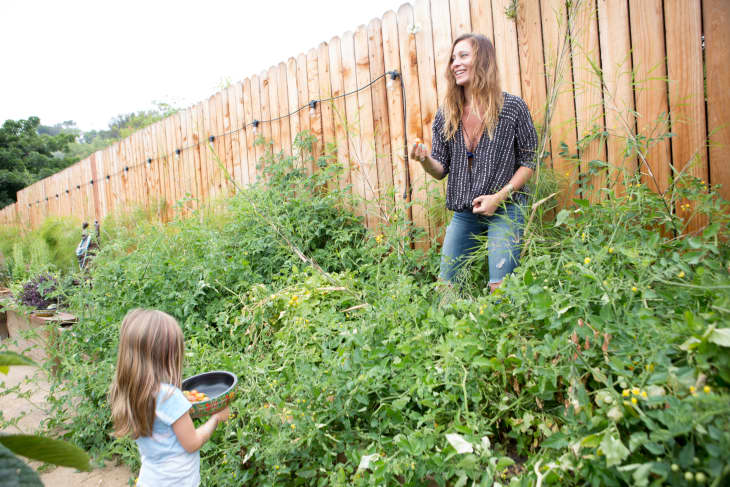How To Make Natural Garden Pesticides
Garden pests make otherwise enjoyable gardening frustrating. Whether it’s snails taking over your lettuce or aphids sucking on your roses, a pest infestation is definitely disappointing, but it’s not a reason to reach for harmful, toxic sprays. The sprays might eliminate the pesky culprits, but they are harmful to you and the environment. Instead, try whipping up one of these simple recipes with ingredients you most likely have on hand.
What You Need
Materials
- Spray bottles
- Biodegradable liquid dish soap
- Lemon or orange essential oil
- Cooking oil
- Baking soda
- Garlic
- Chili powder
- water
Instructions
Natural Insecticidal Soap Spray
This soap is easy to make and good keep on hand, since it should take care of most of those annoying common pests such as aphids, mites, white flies, thrips, and mealy bugs. It kills them by attacking them at the skin, suffocating and therefore eliminating them. Add a few drops of orange or lemon essential oil—a natural insecticide especially effective against ants and scale-to help the the spray stick to your plants.
In a spray bottle, combine:
- 1 1/2 tablespoons of liquid soap
- 1 quart of water
- A couple drops of orange or lemon essential oil
Use a biodegradable liquid soap (such as Murphy’s oil soap, castile soap, or Mrs. Meyer’s), to make the mixture. Once combined, shake well. Spray your plant thoroughly, making sure you cover the underside of the leaves as well.
All-Purpose Garlic Chili Spray
Pepper and garlic are both natural insect repellents and will help to repel Japanese beetles, borers, leafhoppers, and slugs. Garlic also deters larger pests such as deer and rabbits.
In a bowl with a spout, combine:
- Natural Insecticidal Soap Spray (from recipe above)
- 1 tablespoon of chili powder (you could also use fresh or dried hot peppers)
- 5 cloves of garlic, crushed and cut roughly
Allow garlic and chili powder to steep overnight. Strain and pour into a spray bottle. Keep for up to two weeks.
Antifungal Spray
This spray is great for treating plants with fungal diseases. There is nothing quite as frustrating as discovering your plant has an unsightly case of mildew, a type of fungal disease. Suddenly your beautiful green cucumber and squash leaves are covered in patches of grayish-white blotches.
You will need:
- 1 tablespoon of baking soda
- 1/2 tablespoon of oil
- 2 quarts of warm water
Add baking soda and oil to a cup of warm water and stir until the soda dissolves. Mix in the rest of the water. Before attempting to spray and treat your plant, first remove the most severely damaged leaves. Then spray your solution, repeating every few days until it disappears. This mixture is best made and used immediately.
Snail & Slug Bath
Got snails? Simply nestle a small dish or cup of beer in your garden near your snail- and slug-attracting plants. The snails, attracted to the yeast in beer, will take a dip in the libations and slide off into a drunken oblivion. Place the beer in a shaded spot to keep it from evaporating.
Additional Notes:
It’s best to spray your plants in the morning before the sun is too hot, or else you run the risk of burning the leaves of your plant. And while these spray are non-toxic and less harmful than commercial pesticides, they will kill beneficial bugs along with the harmful ones. Please use sprays sparingly, only treating infected and infested plants.
Re-edited from a post originally published by Kimber Watson on 4.12.2012
